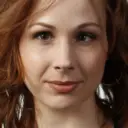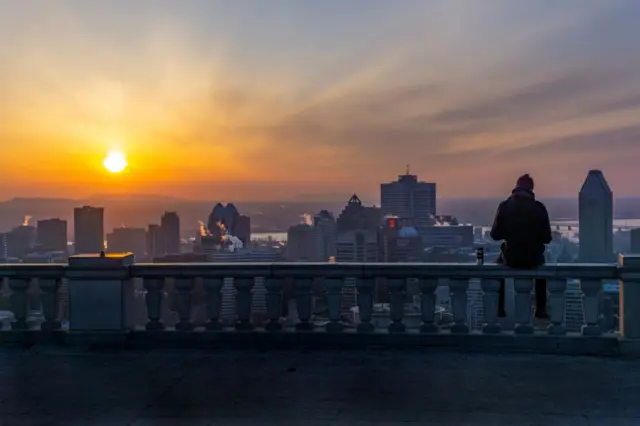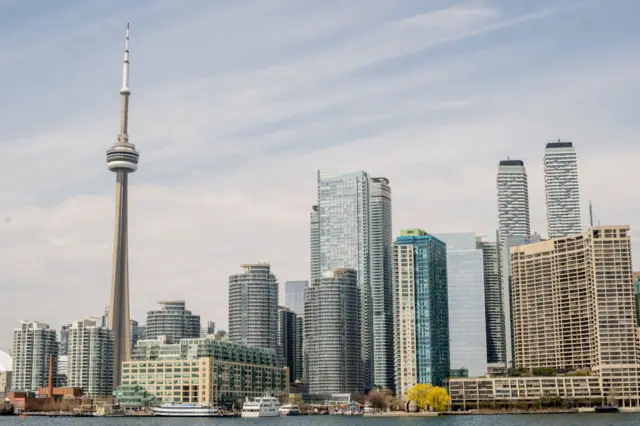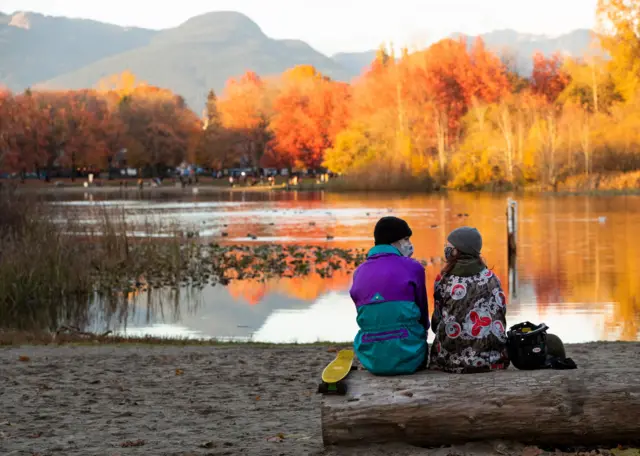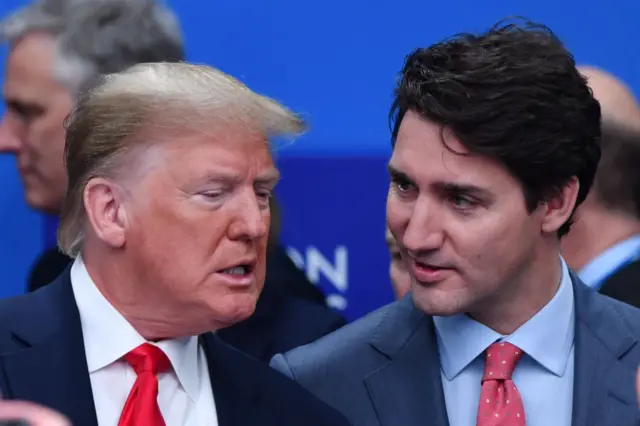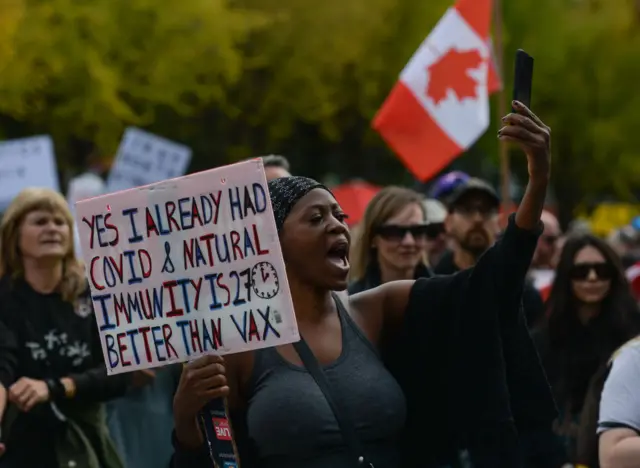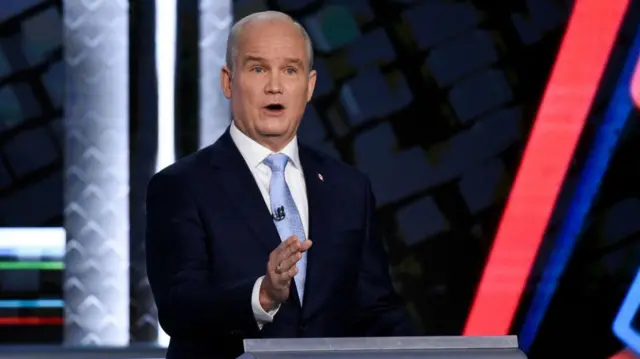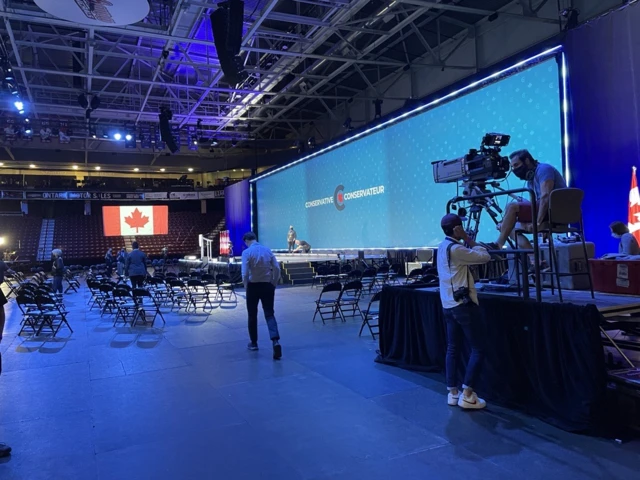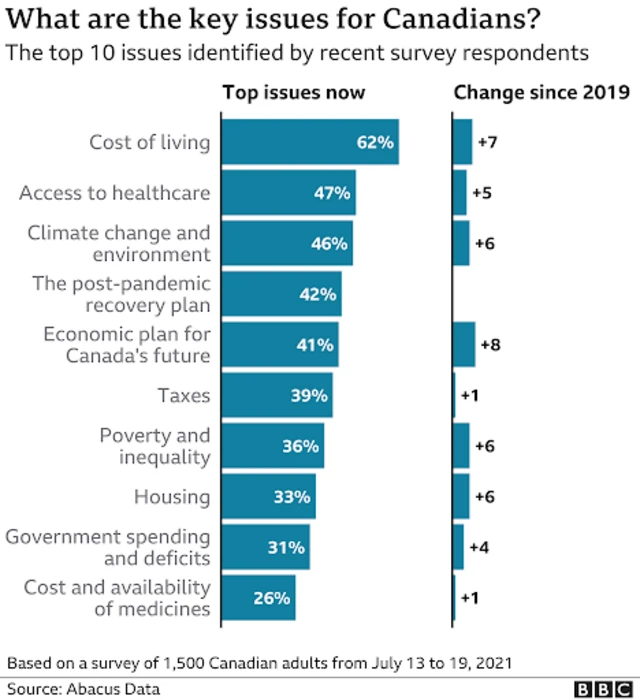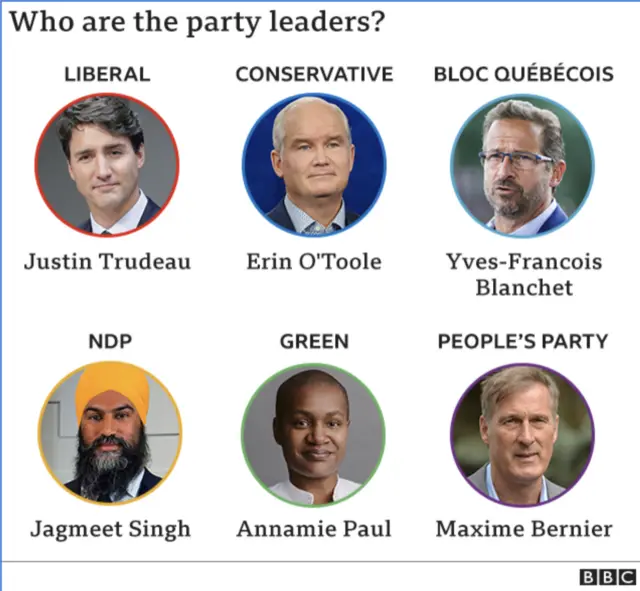Meet the other party leaderspublished at 02:23 BST 21 September 2021
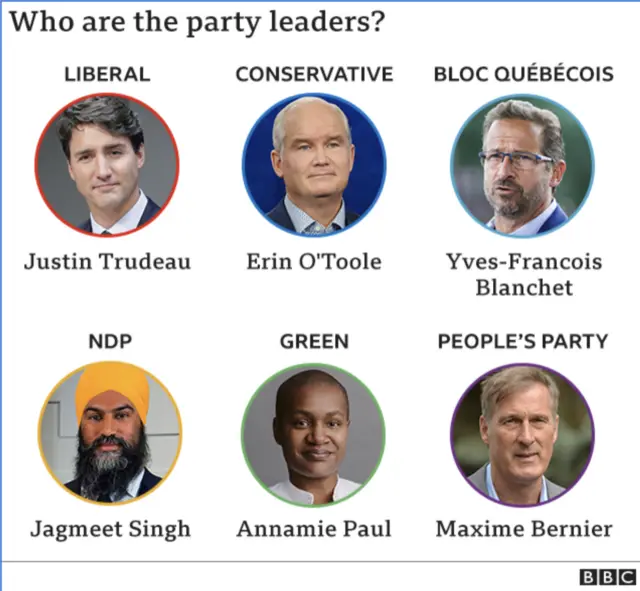
You've been hearing a lot tonight about the leaders of the Liberal and Conservative parties - Trudeau and O'Toole. While one of them is most likely to be prime minister, there are other politicians who could play key roles if no party wins a majority.
Jagmeet Singh, 42, is leader of the progressive New Democratic Party (NDP). The social media-savvy Singh is by far the most popular leader in the country, boasting a 42% approval rate, according to polls by Abacus Data. But unfortunately for Singh, his likeability hasn’t always translated into a high seat count. Heading into election day, his NDP were polling at around 20%, roughly 10 points behind the leaders.
Maxime Bernier, 58, leads the right-wing People’s Party of Canada. The 58-year-old formed the party in 2018 after quitting the Conservative party amid backlash over statements he made about immigration and multiculturalism. His party favours limited immigration, an end to corporate welfare and rejects what it calls “climate change alarmism”. Once considered a fringe party, the PPC has picked up some support this time around, now polling at around 6%.
Yves-François Blanchet, 56, runs the separatist Bloc Québécois. This party only runs candidates in Quebec, where it typically competes against the Liberals for most seats in the province.
Annamie Paul, 48, is the new leader of Canada’s Green Party. She is the first Black Canadian and first Jewish woman to serve as leader of a Canadian federal party. It’s been a bumpy road for the political rookie. She lost one of her three MPs who left in protest after Paul’s comments on the Israel-Palestine conflict and later faced internal challenges to her leadership.
